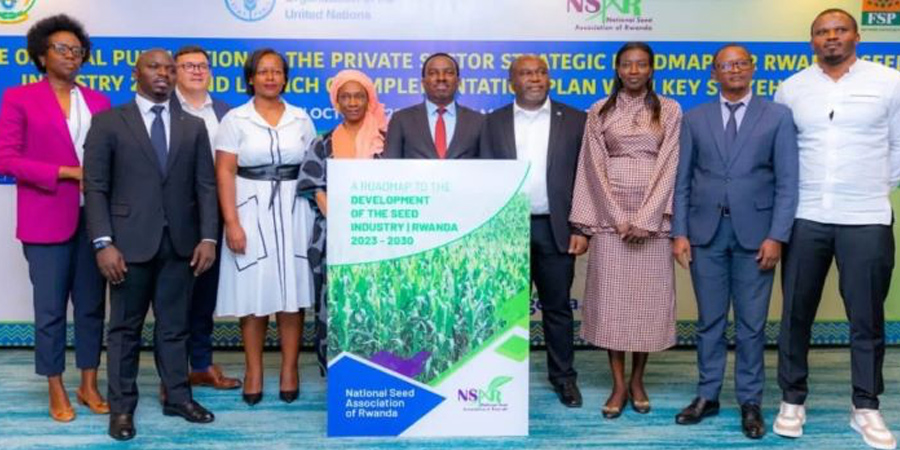Rwanda through the Ministry of Agriculture and Animal Resources in collaboration with the National Seed Association of Rwanda (NSAR), and the Private Sector Federation (PSF) has launched a roadmap to strengthen partnerships in getting rid of fake seeds by 2030.
“We are looking forward as government to work with the private sector to create this modern and improved business environment to deliver high-quality seed to our farmers, counter the risks of counterfeit, low quality and fake seed in the market,” said Patrick Karangwa, the Director General for Agriculture Modernization at the Ministry of Agriculture and Animal Resources yesterday during the launch.
Karangwa noted that the move would bring an improved livelihood to Rwandese farmers.
According to the 2020 African Seed Access Index which measures the top four grain and legume crops; maize, bean, wheat, and soya, satisfaction with regards to efforts to stamp out fake seeds was at 72 percent.
Karangwa revealed that inputs including seeds are currently underutilized by Rwandan farmers since only 37 percent of farmers use quality seeds.
He noted that Rwanda needs to increase its capacity to do high-quality seed production for future export opportunities.
Seed certification
To mitigate seed fraud, the officials revealed that the roadmap advocates for the creation of a National Seed Certification Agency to set standards, monitor seed quality, and enforce compliance.
“This will instill confidence in farmers and incentivize investment in seed production.”
The plan will address the challenges in seed production by upgrading and expanding seed processing facilities, storage warehouses, and distribution networks as well as ensuring sufficient testing of new varieties is done to ready farmers for changes brought about by climate change.
The plan also includes genetically modified seeds.
“Rwanda currently prohibits the use of GMO seed types. It is obvious from numerous interactions that people are generally afraid of GMOs but are unaware of the technology and how it works. Some new developments in GMO testing have been reported,” reads the plan.
Potential export market
According to Karangwa, three years ago, Rwanda used to import over 3,000 tonnes of maize, wheat, and soybean every year. But currently, he said, 9,000 tonnes are locally produced promising a potential export market.
However, the maize seed industry has demonstrated that it is possible to produce seeds of good quality locally. The success of the maize seed industry needs to be replicated for other commodities.
He urged the private sector to ensure that the improved seed brings additional value to the farmer to increase profitability.
We need to further modernize and capacitate our local seed industry players to be compliant with the new regulations that will be introduced.
The Chairperson of the National Seed Association of Rwanda (NSAR), Innocent Namuhoranye, said that the new strategy is a public-private partnership for developing and sustaining a robust and responsive seed industry.
